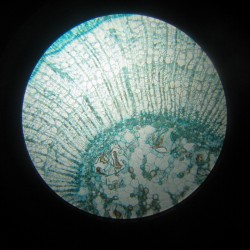Some Great Biological Science Projects

Biological science projects can be a great way for someone of any age to learn some interesting things about an intriguing field. Because biology is such a broad field, there are a multitude of projects that you can undertake in order to learn about biology. Below are some ideas that can be used for science class, a science fair, or even just for some interesting fun!
Exploring the ripening of fruit
The ripening of fruit is a common biological process that can be easily explored. We’re all familiar with what happens as fruit ripens – it gets much more delicious! But you may not be aware of why it happens. There are a group of enzymes in fruit that are activated by a gas called ethylene. Ethylene is produced any time a fruit is wounded, and picking a fruit can cause the release of the gas to begin. Ethylene activates hormones that make a fruit achieve the color and taste it is well-known for.
The ripening process can be delayed, however, and this is what could make an interesting science project: exploring the ways to affect fruit ripening, and understanding why they work. For example, if you want to slow the process you can refrigerate the fruit (cooling slows almost any biological process). But, you can also speed up the process. By putting the fruit in a paper bag and adding another ripening fruit (especially a banana, which emits a great deal of ethylene), you can speed up the process. Experimenting with these variables can help someone understand about enzymes, the factors affecting biological processes, and fruit in general!
Insects and light or heat
Another interesting experiment involves investigating whether insects are attracted to artificial lights due to the light they emit, or the heat. During the day, most insects use the sun as a navigation tool. However, now that there are many artificial lights around at night, insects get pretty confused. The sun stays in one place during the day, so an insect can use it as a grounding point. However, when it flies past an artificial light, the light moves in relation to the insect. This causes them to fly in circles around it. Eventually they will run smack into it.
You can do an experiment to test whether insects are attracted to light or heat by setting up a dark room with a light bulb and an artificial heat source (e.g. an electric space heater). As long as you have a few insects in the room with you, you’ll be set. Watch which object the insects are attracted to. My money is on the light, and you’ll soon be able to affirm that insects are attracted to light, not heat.
Biological science projects can provide someone with hands-on experience and a very educational one at that. They allow people of any age to learn in a way that really implants the knowledge in their mind. They can be great for science fairs, or just for a way to spend any old weekend!
